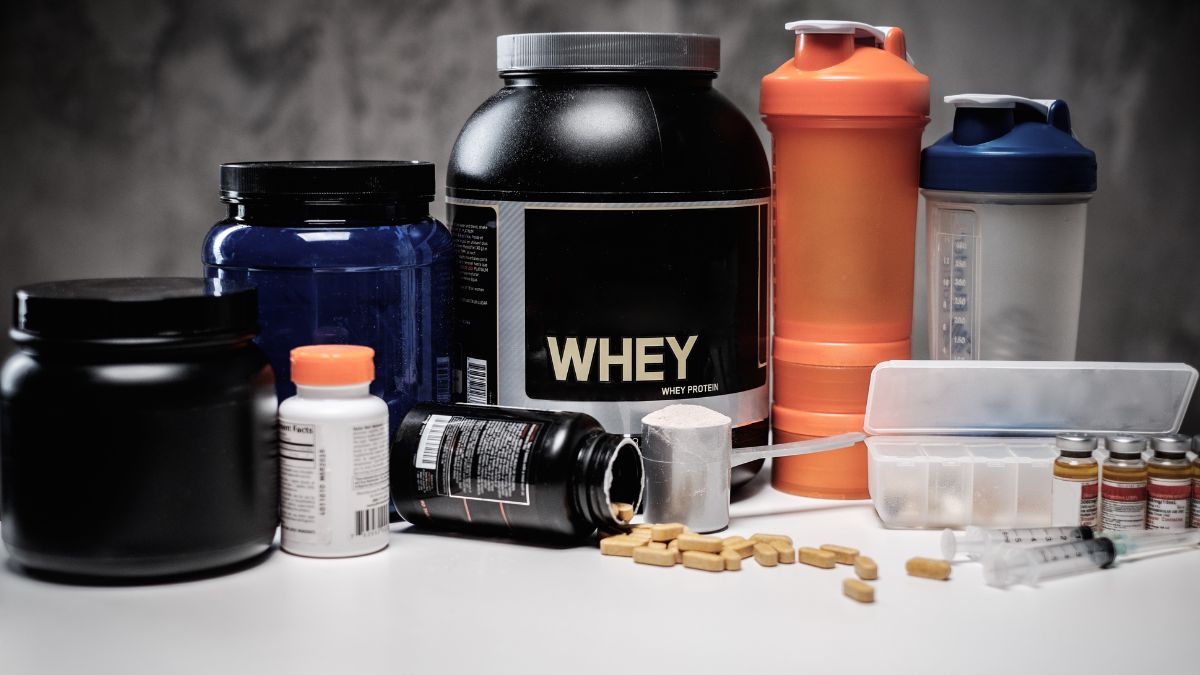- By Priyanka Munshi
- Tue, 14 May 2024 03:08 PM (IST)
- Source:JND
While protein supplements are popular among fitness enthusiasts, it's important to understand why they can not always be the healthiest option. While they can provide a convenient source of protein, relying too heavily on supplements can lead to an imbalance in nutrient intake. Whole foods like lean meats, fish, eggs, beans, and nuts offer not only protein but also essential vitamins, minerals, and fiber that supplements lack. Additionally, some protein supplements may contain added sugars, artificial flavours, and preservatives, which can negatively impact health if consumed regularly.
Overconsumption of protein supplements may also strain the kidneys and liver, particularly if someone already has existing kidney issues. Therefore, it's advisable to prioritise a balanced diet rich in whole foods to meet protein needs and promote overall health and well-being.
Recently, The Indian Council of Medical Research and National Institute of Nutrition (ICMR-NIN) issued 17 dietary guidelines to prevent nutrient deficiencies and address obesity, diabetes, and cardiovascular diseases, recommending evidence-based food and lifestyle changes and rejecting protein supplements. The new guidelines recommend a healthy diet to meet protein requirements, with an average intake of 0.66 g/kg/day.
Also Read: Expert Sheds Light On Factors That Lead To Asymptomatic Ovarian Cancer

Protein supplements can provide a convenient source of protein, relying too heavily on supplements can lead to an imbalance in nutrient intake.(Image Credit:Canva)
As per the report of IANS, Dr. N Vijayshree who is the Head and Chief Dietician of MGM Healthcare said, "With increased knowledge and information about micronutrients and their importance in a balanced diet, people have resorted to protein powder, protein supplements, among other artificial nutritional supplements. These protein powders are usually made with eggs, milk, whey, or plant sources such as soy, peas, or rice, sometimes with a mix of these sources. These supplements, with added sugars and additives, defeat the purpose of having a balanced diet, causing severe or more damage to our kidneys and bone health."
Also Read: Benefits Of Yoga: 5 Surprising Ways Regular Yoga Strengthens Your Emotional Health
In addition, Vani Krishna, Chief Nutritionist, at Manipal Hospital Varthur said, A balanced diet for all age groups can increase protein intake by incorporating legumes, pulses, nuts, seeds, eggs, poultry, and fish. She further added, "An individual's protein intake has to be assessed and checked by a qualified clinical nutritionist before administering any kind of protein powders/supplements. For obtaining good quality protein, a combination of cereals with pulses in the ratio of 3:1 will help to meet the amino acids needed in the body, told IANS."

Overconsumption can strain kidneys and liver, especially for those with kidney issues.(Image Credit:Canva)
Then Dr. N Vijayshree recommended for physical activity to utilize protein and prevent muscle loss, while ensuring adequate carbs and fat intake for optimal protein utilization. He further added, "A balanced diet must meet the need for 20 essential amino acids required for bodily functions. To obtain some of these amino acids, which cannot be synthesised in our body, it is important to consume diverse food groups like carbohydrates, fats, and protein. Protein supplements are not recommended for normal, healthy people. Critically ill, hospitalised patients may require protein supplements, which should be recommended and monitored by clinical professionals."

